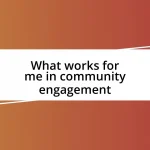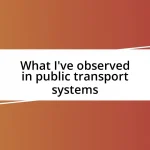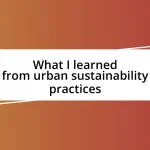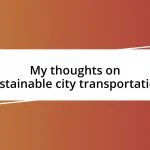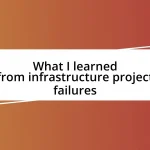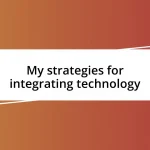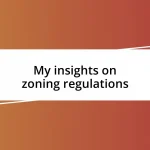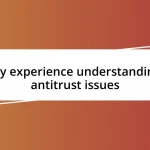Key takeaways:
- Public policy engagement empowers individuals to advocate for their interests, fostering collective action and accountability in decision-making processes.
- Effective strategies such as clear messaging, relationship building, and storytelling enhance engagement efforts and create inclusive conversations.
- Challenges like fear of speaking, differing opinions, and time constraints can be overcome through patience, active listening, and celebrating small victories to maintain momentum in advocacy.
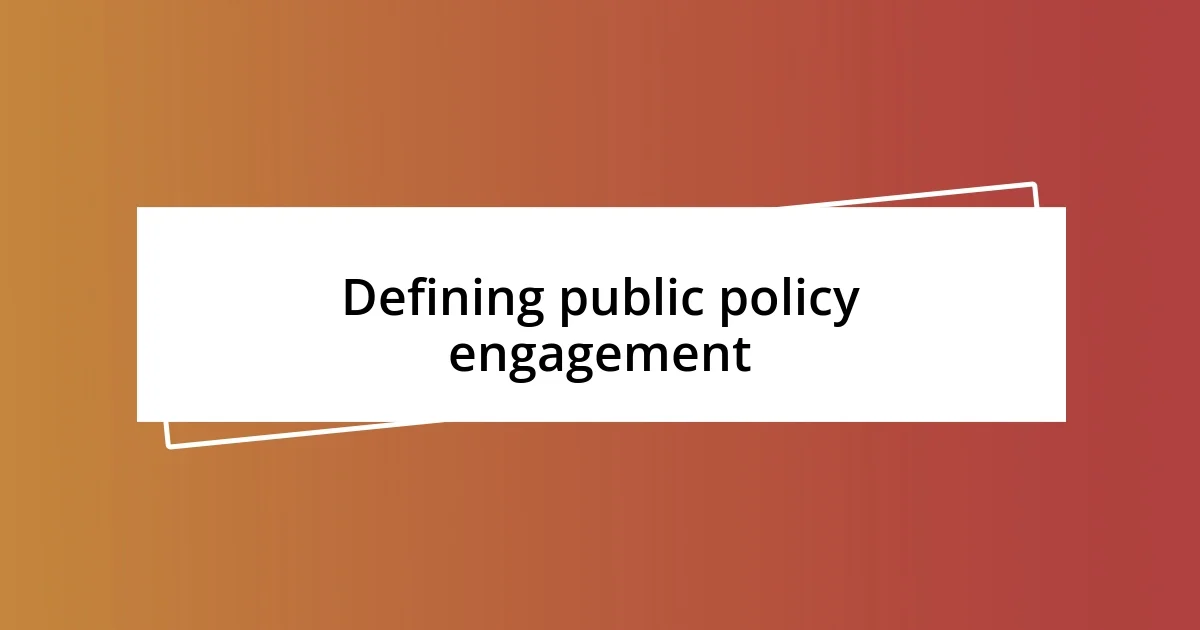
Defining public policy engagement
Public policy engagement is essentially about connecting citizens with the decision-making processes that affect their lives. I remember the first town hall meeting I attended; it was a whirlwind of voices, passions, and ideas—a real eye-opener on how important each individual’s contribution can be. It made me wonder, how often do we really stop to think about our role in shaping the policies that govern our communities?
At its core, public policy engagement empowers individuals to advocate for their interests and those of others. I’ve witnessed firsthand how a single person’s testimony can spark a movement, igniting change on a local level. When I shared my experiences during a budgeting session, I felt an electric connection with others who shared my frustration—it was more than just a meeting; it was a shared purpose.
This engagement can also take many shapes, from grassroots campaigns to formal consultations with policymakers. Have you ever participated in a survey or a public comment period? These are crucial moments where your opinion can influence legislation. Reflecting on my own experiences, I often found that these seemingly small acts can lead to significant shifts in policy direction over time.
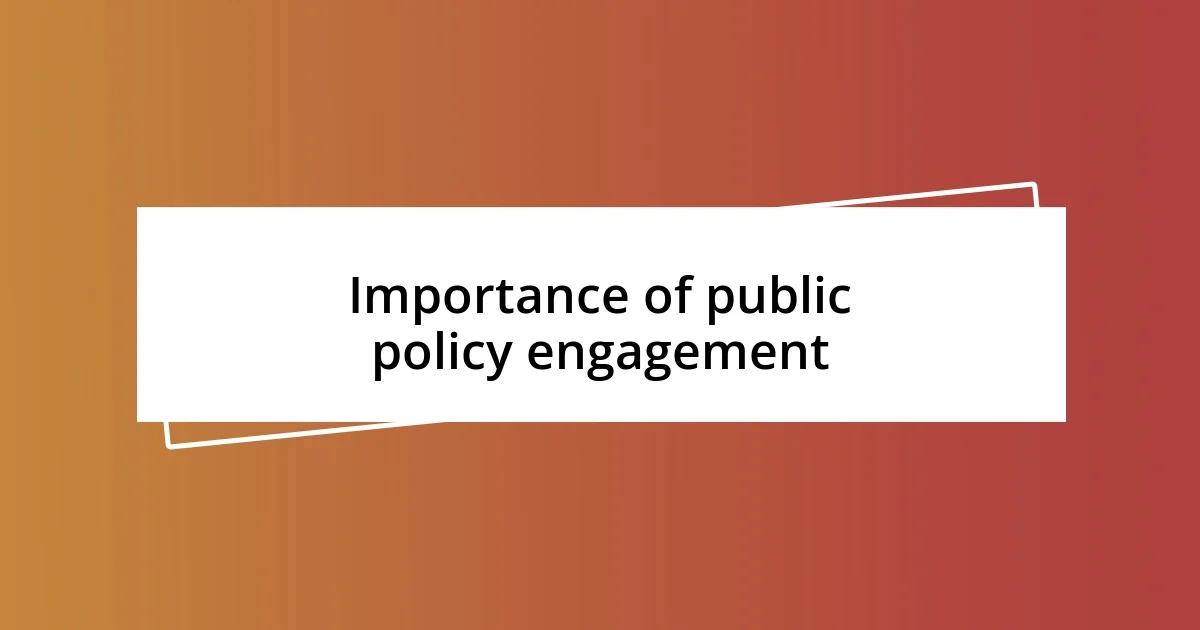
Importance of public policy engagement
Public policy engagement is vital because it creates avenues for citizens to voice their concerns and influence decisions that impact their lives. I still remember a community meeting where I shared my thoughts on parks in our neighborhood. Witnessing how my input resonated with others highlighted the power of collective engagement; we were not just speaking as individuals but as a unified voice for change.
Moreover, such engagement fosters transparency and accountability between the public and decision-makers. When we participate in public forums or provide feedback on proposed policies, we hold those in power accountable for their actions. I recall a time when a local council rep came to discuss a controversial policy, and the candid dialogue led to a reassessment of their approach. It was a powerful moment that reinforced my belief in the necessity of our voices being heard.
Additionally, engaging in public policy builds a sense of community. I’ve often found that when people come together around a shared cause—be it education reforms or environmental initiatives—it cultivates camaraderie and collaboration. This community spirit can energize efforts for change, as seen in support rallies that emerge from such engagements. The emotional connections made during these encounters deepen our commitment to advocacy and reveal the strength found in collaboration.
| Benefit | Personal Experience |
|---|---|
| Empowerment | Participating in a community meeting made me feel like my voice mattered. |
| Accountability | Valuable dialogues with local leaders challenged their decisions and led to policy changes. |
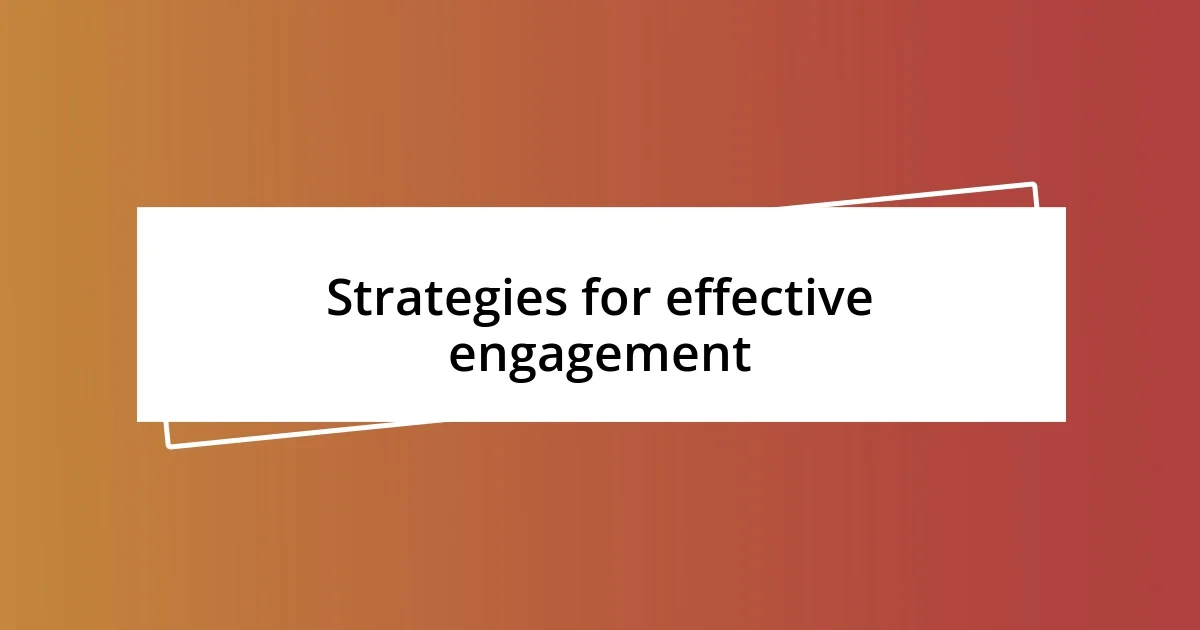
Strategies for effective engagement
Developing effective strategies for public policy engagement requires a thoughtful approach that connects individuals with the processes that shape their communities. One strategy I found particularly impactful was leveraging social media to rally support and share information widely. The first time I organized an online discussion, I was amazed at how quickly people chimed in—sharing their stories, ideas, and frustrations. It was a reminder that technology can bridge gaps and amplify voices that might otherwise be overshadowed.
Here are some proven strategies to enhance your engagement efforts:
- Create a Clear Message: Simplifying your message ensures it resonates with your audience. I learned this when I rephrased complicated policy issues into relatable terms, which made the discussion more accessible.
- Build Relationships: Cultivating connections with local leaders and fellow advocates can create a supportive network. I often reflect on how sharing a cup of coffee with a council member sparked a collaborative project to improve neighborhood safety.
- Utilize Diverse Channels: Engaging through various platforms—like public forums, surveys, and social media—can reach different demographics. I witnessed firsthand the excitement that grew when we combined traditional town hall meetings with online forums, allowing more voices to join the conversation.
- Encourage Storytelling: Personal stories can personalize policy issues. During a workshop, I encouraged participants to share their experiences, leading to powerful testimonies that touched the hearts of policymakers.
- Follow Up: Keeping the conversation alive is crucial. After a public meeting, I always follow up with email reminders or social media posts to harness momentum and support sustained advocacy.
Engagement is a journey—a dance between individuals and broader systems. Every strategy acts as a step toward building a more inclusive and participatory atmosphere where each voice can inspire change.
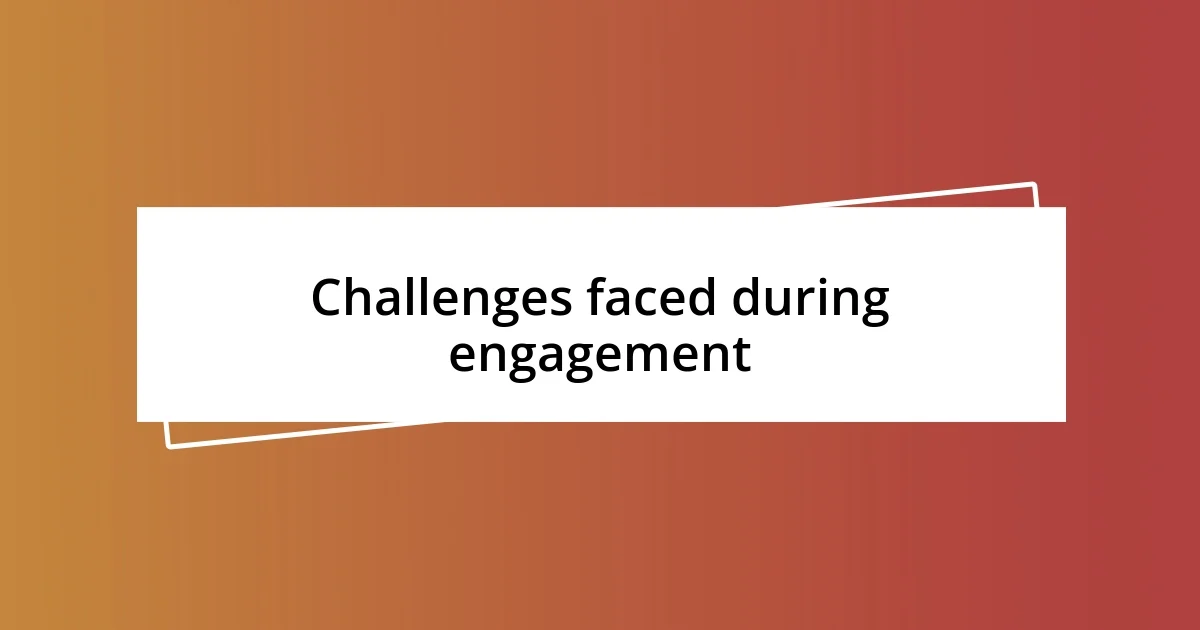
Challenges faced during engagement
Facing challenges during public policy engagement is an inevitable part of the process. One challenge that often stands out to me is the daunting feeling of speaking up in front of large groups. I recall a forum where I almost kept quiet, intimidated by the polished presentations from local officials. It took a moment of deep breath and self-encouragement to remind myself that my perspective—no matter how inexperienced I felt—was valid and necessary. Have you ever felt your voice was too small in a big crowd? That experience taught me that vulnerability can lead to valuable discussions.
Another significant hurdle is navigating differing opinions within the community. I remember attending a community workshop where passionate voices clashed over a proposed policy. Initially, it was uncomfortable to witness, yet it brought to light the importance of being open about disagreements. Instead of drawing battle lines, I focused on listening and finding common ground, even when I disagreed with some viewpoints. This experience made me realize that every discussion, even the heated ones, can become a stepping stone to mutual understanding and respect.
Additionally, time constraints can be a major obstacle for many participants. Life gets busy, and I often found it challenging to balance work, family, and community engagement. There were moments when I had to decide between attending a meeting or finishing a work project. However, I learned to prioritize engagement by setting reminders and blocking time on my calendar. It’s about making a commitment to my community, even when it feels inconvenient. Have you faced the same struggle? Finding that balance is key to sustained involvement, and understanding these challenges helps us push through to impact change.
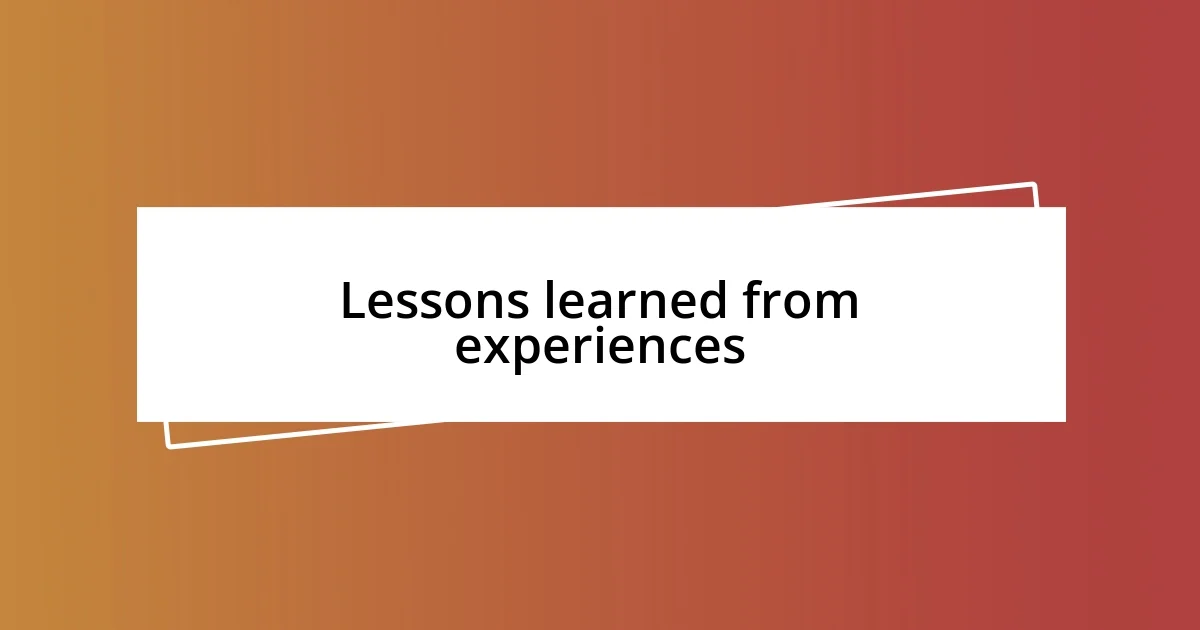
Lessons learned from experiences
In my journey through public policy engagement, one of the most significant lessons I’ve learned is the importance of patience. There was a time when I rushed to see immediate results after organizing a community meeting. I remember feeling frustrated when the changes I advocated for didn’t materialize overnight. However, I soon realized that genuine policy transformation often requires sustained effort, consistent dialogue, and incremental progress. Have you ever felt the weight of impatience? It taught me the value of persistence and that every small step counts toward a bigger impact.
Another lesson that stood out during my interactions is the power of active listening. I once participated in a panel discussion where I took a back seat, keenly observing others’ conversations rather than inserting my views right away. To my surprise, it allowed me to connect deeply with different perspectives. I found that the more I listened, the more I understood the complexities of issues at hand. Isn’t it fascinating how stepping back can sometimes create more space for growth? This experience reinforced the idea that true engagement isn’t just about sharing my voice; it’s also about respecting and valuing the voices of others.
Lastly, I discovered that celebrating small victories can hugely impact morale. At a local policy change meeting, I took a moment to acknowledge even the tiniest achievements—like getting more folks to attend or having a meaningful discussion. It felt uplifting when I saw smiles on faces as we recognized these efforts together. Have you found joy in these small wins too? This has helped foster a sense of community and encouraged everyone to stay engaged, especially during challenging times. Embracing and celebrating these moments shifts our focus toward progress, no matter how small it may seem.

